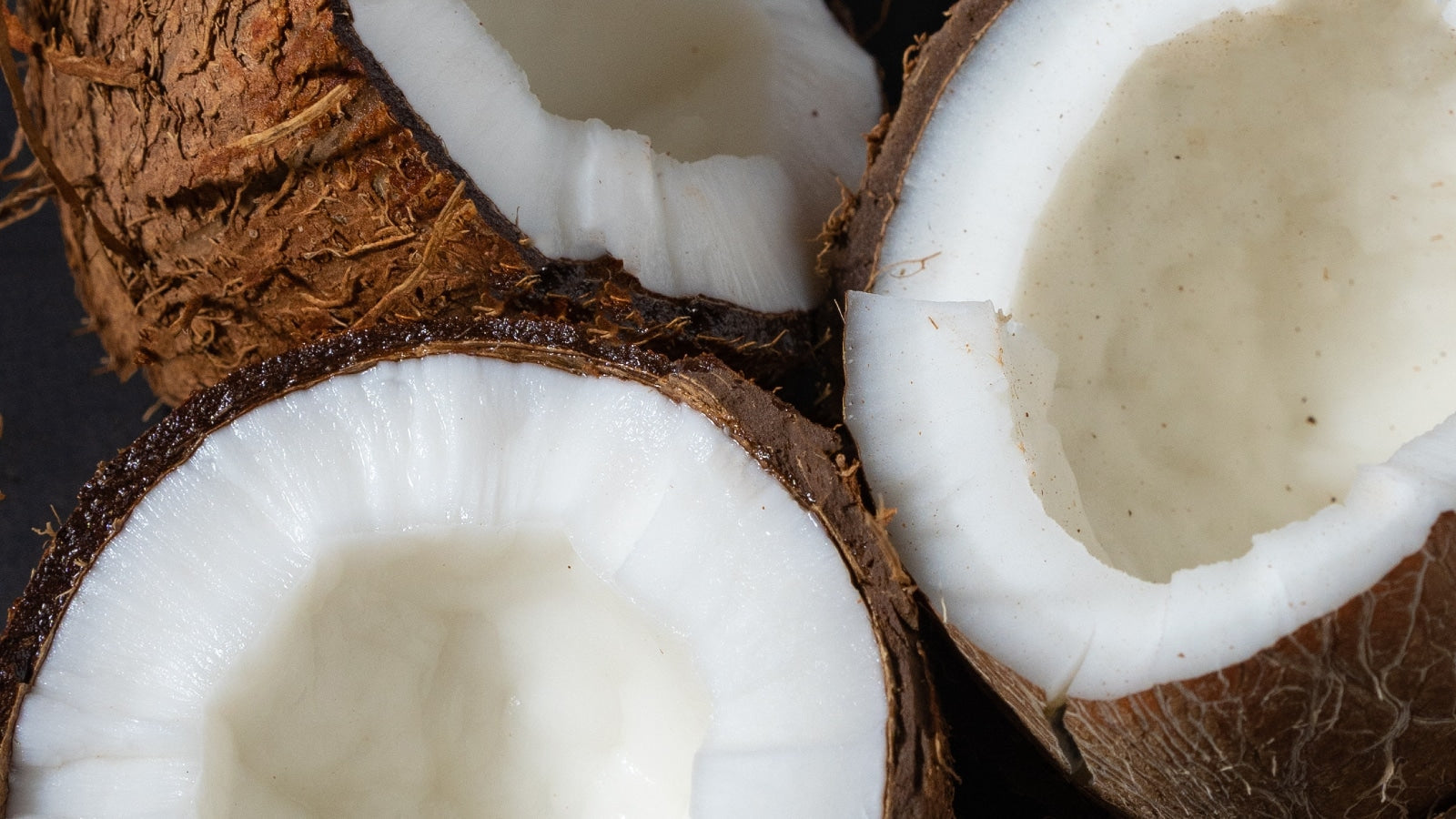
Should you include Coconut oil in your pet's diet?
by Addiction Foods on Mar 18 2022
Coconut oil started surging in popularity in 2011, being tagged as a "health food" for its countless health benefits and uses. Its proliferation in natural skincare products and health food aisles became so apparent that pet parents had to ask – is it something my pets can also benefit from? The answer is a resounding yes. Veterinarians agree that Coconut oil is healthy for pets. If you're on edge about including this edible oil in your pet's diet, read on to know its components and what makes it beneficial for pets.
What is Coconut oil
Coconut oil is extracted from the meat of a Coconut. It's high in medium-chain triglycerides (MCTs), a type of saturated fat. Saturated fat is a dietary fat commonly found in meat but is also seen in plant foods like Coconut and Palm oil. There are several types of MCTs found in Coconut oil:- Lauric acid (49%)
- Caprylic acid (8%)
- Myristic acid (8%)
- Palmitic acid (8%)
- Capric acid (7%)
- Oleic acid (6%)
- Stearic acid (2%)
- Linoleic acid (2%)
The benefits of coconut oil
Coconut oil has a wide range of nutrients that help contribute to your pet's overall health. "Coconuts are a rich source of protein and minerals. The oil itself has antibacterial properties effective against certain types of fungi," said Dr. Jean Paul Ly, DMV. Some of the benefits of coconut oil include:Energy boost
Coconut oil's MCT components contribute to higher energy levels in pets. According to Dr. Bruce Fife, C.N., N.D., Coconut oil "balances the thyroid, helping overweight dogs lose weight and helping sedentary dogs feel energetic".Better digestion
Dr. Fife also notes the power of Coconut oil in improving digestion. Lauric acid's antibacterial properties help promote gut health by supporting the growth of good bacteria. As a bonus, Lauric acid also helps the body absorb nutrients from foods.Healthier skin and coat
Aside from Lauric acid promoting good gut health and nutrient absorption, it's also effective in reducing inflammation. Together with Capric Acid and Caprylic Acid, they make one of the best antibacterial and antifungal agents. This makes Coconut Oil effective in promoting skin and coat healthy by easing irritation caused by hot spots and yeast dermatitis.Improved cognitive function
We've previously discussed how Coconut oil is made up of several MCTs. These MCTs, once digested by the body, turn into Ketones. Ketones provide energy to the brain. A study conducted on senior Beagles proved that MCTs help stimulate senior dogs' cognitive function. So, giving your senior dogs Coconut oil can help sharpen their memory.Including Coconut oil in your pet's diet
As with any other new food introduced to pets, it's best to err on the side of caution. Talk to your veterinarian so you can make an informed decision about adding Coconut oil in your pet's diet. And if you decide to push through about adding this edible oil, make sure to start slow to avoid diarrhea.Pet food with Coconut oil
If you want to opt for a more convenient way of including Coconut oil in your pet's diet, consider feeding your pets food that includes Coconut oil in the ingredients list. Addiction Pet Foods' provides pet parents like you a wide range of nutritional solutions enriched with Coconut oil:Addiction Raw Alternative Food
-
-
Country Chicken and Apricot Dinner
- Features tender and cage-free New Zealand Chicken combined with the delicate aroma of sweet Apricots
-
Country Chicken and Apricot Dinner
-
-
Herbed Lamb and Potatoes Entrée
- Features grass-fed New Zealand Lamb seasoned with fragrant Rosemary and Thyme
-
Herbed Lamb and Potatoes Entrée
-
-
Homestyle Venison and Cranberry Dinner
- Features free-range New Zealand Venison, a novel protein source ideal for dogs sensitive to Chicken, Beef and Lamb
-
Homestyle Venison and Cranberry Dinner
-
-
Perfect Summer Brushtail
- Features sustainably-sourced Brushtail, novel protein source ideal for dogs sensitive to Chicken, Beef and Lamb
-
Perfect Summer Brushtail
Addiction Dry Food
-
-
Wild Kangaroo & Apples Recipe
- Wild Australian Kangaroo formula free from common allergens, ideal for dogs with skin and digestive sensitivities
-
Wild Kangaroo & Apples Recipe
-
-
Viva La Venison
- Free-range New Zealand Venison formula free from common allergens, ideal for dogs with skin and digestive sensitivities
-
Viva La Venison
-
-
Zen Vegetarian
- A 100% plant-based formula with added vitamins, minerals and amino acids.
-
Zen Vegetarian
Addiction Dog Treat
-
-
Venison Recipe Meaty Bites
- Moist and soft-textured treats made with free-range New Zealand Venison as the #1 ingredient
-
Venison Recipe Meaty Bites
-
-
Brushtail Recipe Meaty Bites
- Moist and soft-textured treats made with wild New Zealand Brushtail as the #1 ingredient
-
Brushtail Recipe Meaty Bites
-
-
Beef Recipe Meaty Bites
- Moist and soft-textured treats made with grass-fed New Zealand Beef as the #1 ingredient
-
Beef Recipe Meaty Bites
Share

